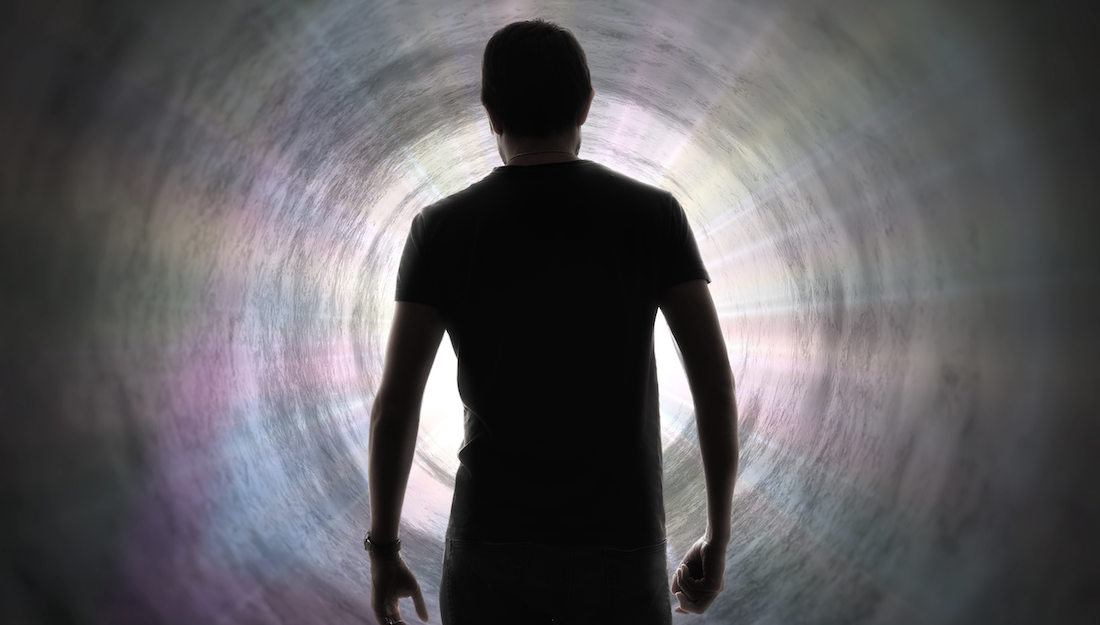Why it’s time to confess your darkest secrets

- Secrets weigh heavily upon us. We obsess and gnaw on them, making us anxious and unhappy.
- If secrets are a poison, then confession is the medicine.
- As Socrates argued, self-confession and self-honesty is essential to a fulfilled life. The secrets we have and the reasons we have them are worth examining.
You probably have a secret you’ve never shared with anyone. Let’s dive into your psyche, for only a moment, to retrieve that secret. Dig up the fetid, festering lump of your shameful past and hold it before your mind’s eye. How heavy is it? What anxiety, fear, or panic lies at its core? How long can you hold it like this until you feel your heart gallop and your breath quicken?
According to one study published in the Journal of Personality and Social Psychology, 97% of us hold at least one secret that falls within 38 categories identified by the researchers. The secret could be about an abortion, poor finances, a hidden relationship, a hidden addiction, sexual orientation, a lack of sex, a past crime, and so on. Keeping secrets is universal. Your dearest loved one — your “we tell each other everything” person — is almost certainly hiding something, too.
What damage, though, does holding these secrets do? And what is to be gained in their confession?
The power of confession
If secrets act as a kind of poison, then confession is the remedy or purification. When we confess to someone, we drop our pretenses, throw away the masks and costumes, and reveal who we are. A confession is an invitation to witness the self laid bare — an act of tremendous courage that leaves us vulnerable and afraid. But it’s also hugely good for you.
According to a study led by Michael Slepian of Columbia University, the average person carries with them 13 secrets. Of course, some of those might be bigger or smaller, but each bears a weight. Try as we might to ignore or repress these secrets, our mind keeps wandering back to them, as if we’re picking at some kind of psychic scab. What Slepian et al. showed is that people will turn their attention to their secrets on a daily basis, and even more so when it’s a significant or large one.
What’s most fascinating about this study, however, is that the more people dwell on their secrets, the more unhappy they are. We are irresistibly pulled to obsess over our secrets and doing so negatively affects our wellbeing. This problem is exacerbated by the nature of a secret, in that it is never purged, but rather latches on and buries deeper. There’s no way to easily get rid of a secret.
As Slepian et al. wrote, “given that secrets often deal with ongoing personal concerns that require some resolution if one is not talking about it with others, then the only venue to work through it is within one’s own mind.”
We replay and relive our secrets in an effort to be rid of them, but that just makes us unhappier and more anxious. Confession, then, is a necessary step in sweeping clean these blights of the mind.
Know thyself
Psychology teaches us that a life of self-honesty, of confessing our secrets, is a recipe for happiness and wellbeing. There’s also a long philosophical tradition of confession. But confession is not only about opening up to the world. It’s also about confessing to ourselves. It’s the truth found in one of the most famous quotes of philosophy: “the unexamined life is not worth living.”
For Socrates, the philosopher’s job is to introspect and self-examine; to see truly who we are. The problem is that when we spin a certain narrative long enough, we begin to believe it ourselves. Sometimes, this might be useful; as when we want to be more confident, more competent, or virtuous. At other times, though, it leads to an unhappy, tortured life.
Without knowing who we are, how are we to know what we want in life? When we are blind to our truest self, there’s no way of deciding what job to take, what friends to have, or what kind of love we need. The examined life is the one that looks in on itself, warts and all, and accepts. To do otherwise would be like to play poker while seeing only half your hand. Each time we keep covered an aspect of ourselves — our sexuality, our wants, our ambition — we deny ourselves the tools to make the best decisions.
Lessons in the dark
Confession transforms who you are. As we have seen, holding secrets for a long time bears you down. It makes you unhappy, isolated, and anxious. There’s a reason why talk therapies (often with an uninvolved stranger) are so effective, and why the practice has survived across so many religious traditions.
Confession shows us that there’s something to be learned from these dark, hidden moments in our past. It pulls up those repressed, repulsive secrets and asks, “what does this say about who I am?” Everything we do — the celebrated and public acts, as well as the hidden, shameful secrets — was chosen by you. A good confession does not simply purge us of secrets, but also asks us what can be learned from them. It takes them, examines them, and draws conclusions about the motivations or deeper issues that led to their existence.
Confession is one of the most insightful acts of introspection we can do.
Jonny Thomson runs a popular Instagram account called Mini Philosophy (@philosophyminis). His first book is Mini Philosophy: A Small Book of Big Ideas.





